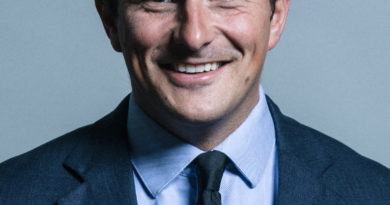Jack Straw – 2010 Speech to Labour Party Conference
Below is the text of the speech made by Jack Straw at Labour Party conference on 28th September 2010.
Conference, after thirty years as an adornment on the Labour front bench I’m moving up to that most honourable of places, the back benches.
So, this will be my last conference speech from the platform and I have been promised that no one will be removed, arrested, or even offered a place on the NEC for heckling me.
It has been a huge privilege to serve the party and the British people in the posts I have occupied. Thank you.
My earliest experiences as a Labour front bencher coincided with the initial impact of Margaret Thatcher’s brutal economic policy.
Unemployment was rising fast, interest rates hit 15%, and inflation was on its way t o 22%. Never had the country needed a strong and united opposition more.
But while the people in this country were desperately looking to us for a constructive alternative, we were busily engaged in endless bouts of self defeating internal strife.
All people saw of Labour then, was division and disunity. A divided party is one which detaches itself from the concerns of the British people. It loses their trust and allows its political opponents free rein to scorch the earth across our social landscape.
We allowed the Thatcher-Major governments to last eighteen years. We cannot permit the Cameron-Clegg Government more than five.
So I’m very happy that despite the scale of our defeat in May we have begun our fight back in such a united manner.
For that we should thank, above all, Harriet Harman, for her fantastic leadership since the election. And we should also thank the five leadership candidates who fought their corners in a way which I believe has strengthened the party.
Now that Ed has become our leader we should all back him in the difficult task of developing our response to the Government’s cuts agenda and the social and economic damage which they will cause.
But beware that as the cuts begin to bite, and distress and anger about them rises, so too will the tendency of some people on the left to divide.
We mould our own future. If we are to stay relevant and electable in 2015 we have to learn the lessons of our past.
It took years of work by Neil Kinnock, John Smith, Tony Blair and Gordon Brown, to undo the damage of the 1980s and reconnect us with all the people for whom this party works, recognising a fundamental truth: that we can only help the poorest and most insecure if we are in Government.
And we can only achieve Government by building our support not only amongst the weakest in society but crucially among, as Ed has said, the squeezed middle and amongst those who feel more secure about their incomes and their place.
Equality is the most important idea which separates us from the Conservatives and the Liberal Democrats. We know that the countries which are healthiest, happiest and most secure are also those which offer the most equal societies.
Equality is not uniformity. It’s not about making everything and everyone the same. It is certainly not about levelling down. It’s about recognising and celebrating that every individual is different, and entitled to an equality of rights, of dignity, of the opportunity to realise their dreams to the greatest extent.
And equality too is about opposing private extravagance and public squalor.
It’s because of our values of equality that Labour in Government worked tirelessly to tackle poverty, by promoting economic growth alongside a national minimum wage, tax credits and the transformation of the public’s services.
We have to challenge the myths of Labour in power now being pedalled by the Conservatives and Mr Clegg.
We did build more schools and hospitals; we did recruit more teachers, nurses, doctors and police officers.
And the results were improved educational outcomes for everybody. School standards in my area alone, Blackburn with Darwen, more than doubled in a decade.
We literally improved people’s life chances through better health care and safer streets and homes as we drove down crime. And we guaranteed individual rights regardless of race, religion, gender, sexuality, or disability.
One of my proudest achievements was the introduction of the Human Rights Act, which came into force ten years ago this Saturday.
It is one of the greatest steps for equality and rights – for the individual against the state – that this nation has seen in over three centuries. And we, the Labour movement, did it.
We introduced the strongest laws against racial discrimination and for racial equality anywhere in western Europe.
We banned religious discrimination – opposed by the Liberal Democrats. We repealed the disgraceful section 28 – introduced by the Tories. By this, and much else, we made Britain a more tolerant and a fairer place. Never forget that.
And keep telling your friends, your work colleagues, your neighbours, because if we don’t honour and celebrate our achievements our opponents certainly won’t do it for us.
If you think about it, crime too is an issue of equality. Indeed an issue of class.
The less well off you are, the more likely you are to be a victim of crime.
There’s no liberty, no opportunity, if you feel trapped in your own home or in fear on the stree ts. And that’s why we were so committed to make people safer from crime.
During those eighteen years of Conservative Government crime doubled. The rise in crime was disproportionately concentrated in poorer areas against poorer people; out of sight and so out of mind for the Conservatives.
And nothing changes – now they say they’re considering the abolition of ASBOs which have made such a difference to tackling anti social behaviour.
Conference, we were the first – the only – Government since the war not just to get crime down, but by a significant amount.
The British people welcomed the fact that crime fell. But Conservatives and Liberal Democrats don’t. They are in denial about the figures.
They’re now talking about changing the way crime is recorded and abolishing the most reliable series of data – the British Crime Survey. They are again tempted down the Norman Tebbitt path. Norman Tebbitt, who when faced with the relentless truth of ever r ising unemployment, changed the way it was counted not once, not twice, but 18 times.
But they’ll find it more difficult to fiddle the figures this time, because there’s something else we did – we put the Office of National Statistics on an entirely independent footing.
Conference, our great legacy on equal rights and public safety is at risk.
The Liberal Democrats have conspired to put the Human Rights Act under review. The Conservatives, meanwhile, are going to cut the use of DNA technology and CCTV, and restricting the ability of the police and local communities to fight the scourge of anti-social behaviour.
And who will benefit from this madness? There’ll be greater freedom for the criminal, less liberty for the law abiding. It’s crazy.
The Coalition Agreement represents the worst of both parties. You’ve got Conservative ministers implementing the most dangerous of the Liberals’ policies on crime, while Liberal ministers are complicit in rushing to implement savage Conservative cuts.
Nick Clegg has said he’s released the “inner Liberal” in many Conservatives. But Mr Cameron has undoubtedly set free the “inner Tory” in Nick Clegg.
Nowhere is that more evident than in Mr Clegg’s willingness to go along with Conservative proposals to gerrymander the boundaries. Even senior Tories have publicly admitted that they are doing this for narrow party advantage.
Nick Clegg boasts about his party’s commitment to localism. Guess what? His Bill bans the Boundary Commission, by law, from daring to set up any local public inquiry into boundary proposals. We’ve had the best, most bi-partisan system for settling boundaries in the western world. So good, that David Cameron used it in 2003 to defend his own West Oxfordshire boundaries and vocally to challenge those who claimed that the numbers of MPs should be cut.
But if Nick Clegg and David Cameron don’t want to listen to the public anymore, we must not ma ke the same mistake. As Ed Miliband has said, the crucial thing is that we listen and stay connected to maintain the confidence of the vast majority of the British people.
This is not about selling out, or any of that nonsense.
It’s about listening, listening carefully – and putting our timeless values into ways which protect and benefit people as their lives – and their circumstances – change.
That’s what we’ve always tried to do in my great constituency of Blackburn – you know the one, with the world’s greatest football team, one of only four ever to win the Premiership.
We’ve now got a terrific Blackburn Labour website.
But new forms of internet communication like this can only ever be a supplement to face-to-face engagement.
In my constituency, we hold residents’ meetings where month in, month out, the halls are full. And soap box sessions in the Town Centre. Don’t dismiss them as “old-fashioned”. They cost next to nothing.
Above all, they work, because there is an equality of arms, of mutual respect, amongst everyone present.
And they work in another way. In Blackburn, Labour won against all odds in 1983.
My majority stayed up in 2005; and this year there was a swing in Labour’s favour.
And there are plenty of other constituencies which defied the national trend, always for the same reason – because we connected with people’s aspirations and their fears.
We didn’t talk over them or at them – we talked with them.
I know that our new leader, Ed Miliband has the same view.
I also know this…with the unity this conference is demonstrating, the effectiveness we’ve seen of our party in Parliament and in the country, and with the development of new policies for new times, we do have the strength and the energy to work relentlessly over the next four and a half years for that imperative for our nation – a Labour victory in 2015.


